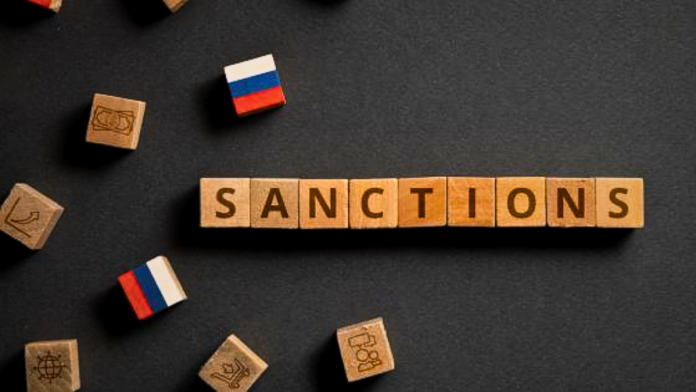The United States has signaled that tougher measures could soon be coming against Russia. On Sunday, President Donald Trump said he is ready to impose what he called the “second phase” of sanctions on Moscow. Speaking outside the White House, Trump confirmed that additional steps are being considered in response to Russia’s ongoing war in Ukraine.
This statement followed fresh remarks from US Treasury Secretary Scott Bessent, who warned that Moscow’s economy could “collapse” if Washington and the European Union move forward with stronger secondary sanctions. These secondary sanctions would target countries that continue to buy Russian oil, making it harder for Moscow to keep selling its crude abroad.
According to officials, Trump and Vice President J. D. Vance held a call with European Commission President Ursula von der Leyen last week to discuss ways to tighten pressure on Russia. The call was followed by further talks between Bessent and von der Leyen, focused on ensuring that major buyers of Russian energy face consequences for helping Moscow earn revenues from oil exports.
US sanctions Palestinian rights groups over ICC war crimes case against Israel
Tensions Rise Over India’s Oil Purchases
India has become a key point in this dispute. The South Asian country is one of the largest buyers of Russian oil outside of China. In recent months, Washington has already acted by putting secondary sanctions on India because of these purchases.
Last week, Trump said India was the “largest purchaser outside of China” and explained that new measures have already been taken. On top of that, the United States has introduced extra tariffs on Indian imports. These additional duties are set at 25 percent, which come on top of another 25 percent tariff that was announced earlier. This means that New Delhi now faces a total of 50 percent duties from Washington, effective from August 27.
American officials, including Treasury Secretary Bessent and trade advisor Peter Navarro, argue that India’s purchases of Russian oil are indirectly funding Moscow’s war efforts in Ukraine. They have stressed that money flowing to Russia through oil sales is helping fuel the ongoing conflict.
In response, India has strongly rejected these claims. New Delhi has described the tariffs as “unjustified and unreasonable.” Officials there have maintained that India’s energy decisions are guided purely by national interest and market needs. They argue that energy security for their citizens cannot be compromised.
Canada lowers Russian oil price cap to $47.6 per barrel in coordinated sanctions
A Critical Moment in Global Energy and Politics
The announcement of potential “second phase” sanctions highlights a critical moment in the ongoing conflict between the West and Russia. Oil remains one of Russia’s biggest sources of revenue, and cutting off that stream of money has become a key goal for Washington and its allies.
Treasury Secretary Bessent’s warning that Russia’s economy could face collapse under heavier secondary sanctions shows how serious the situation has become. The focus now is not only on Russia itself, but also on countries that continue to maintain large energy trade ties with Moscow.
Talks between Trump, Vance, von der Leyen, and senior officials are expected to keep targeting this issue. Leaders have emphasized that cooperation across the Atlantic is essential to put more pressure on Russia.
India, meanwhile, continues to stress its right to choose its energy partners. With its massive population and growing economy, it argues that affordable oil supplies are vital to its development. However, Washington remains firm that purchases of Russian crude oil are strengthening Moscow’s position.
The situation leaves global markets on edge, as energy policies and political decisions collide on an international scale. The next steps by the Trump administration could bring even more attention to the economic consequences of the war in Ukraine.


